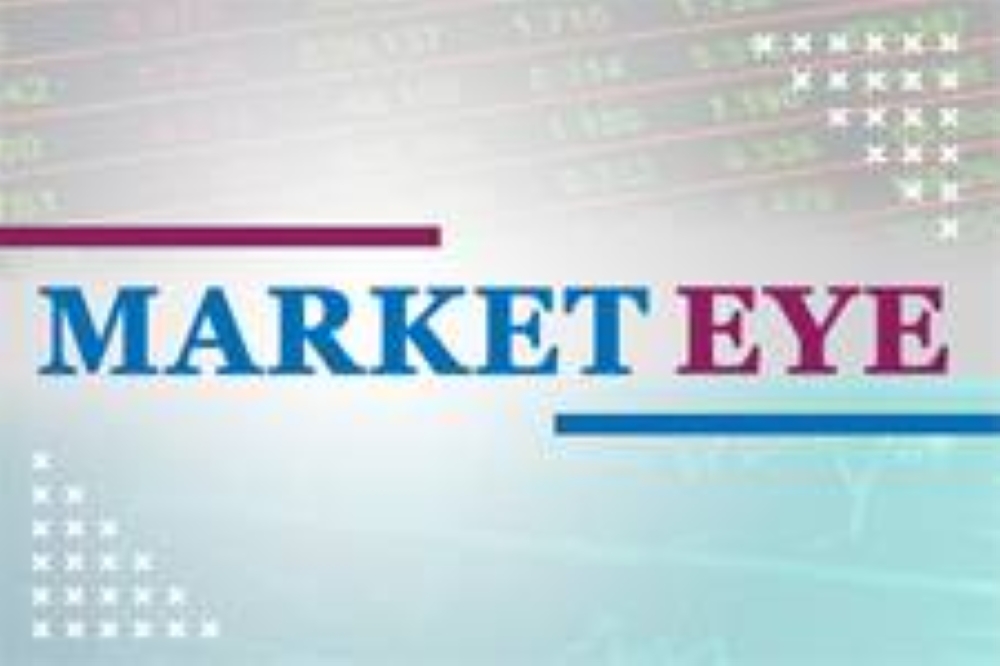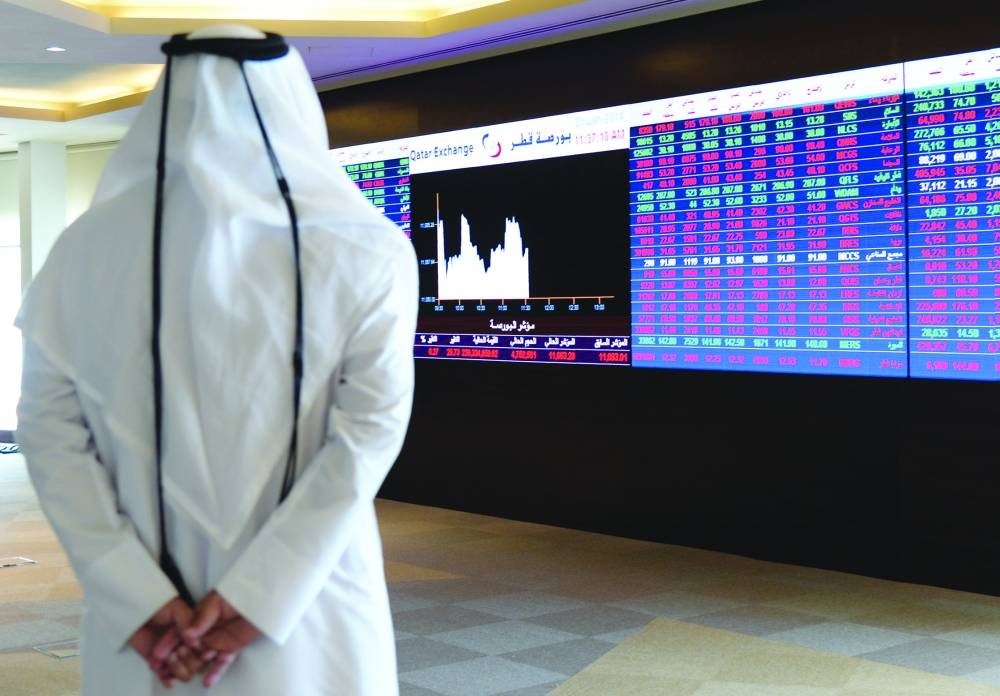
was seen kick-starting the process of shortening the settlement cycle and widening the ambit of stocks eligible for margin trading, liquidity provision and covered short-selling as it bids adieu to 2023, which ended on a high note. The stock market, where foreign funds typically account for 30-40% of average daily turnover, was volatile since the start of 2023 mainly on global inflation, oil price decline and the hardening interest rates in the US, which is now on a 22-year high. However, the latter part, especially in the last two months, expectations ran high on rate cuts in the US by early 2024, which overall made the QSE land in a positive trajectory in 2023 with the Gulf and foreign funds turning overall net buyers, even as domestic institutions and local retail investors remained net sellers.
Aided by strong demand, especially in the telecom, insurance, industrials and banking counters, the 20-stock Qatar Index vaulted 1.4% and capitalisation added QR16bn in 2023, which saw the third financial sector strategy take a holistic view to make Qatar's capital market lead the region by improving liquidity and velocity through enhanced regulatory framework, state-of-the art infrastructure, including electronic trading platforms and cloud computing.
The year 2023 witnessed the country's first initial public offering through book-building, launch of an electronic platform for the listed companies to arrange annual general assembly of shareholders, hordes of companies relaxing the foreign ownership limit (FOL) up to 100% and Qatar Development Bank agreeing to finance up to QR4.6mn or 70% of the listing fees of every eligible small and medium enterprises (SMEs) wishing to get listed on the venture market.
The QSE, which migrated to Millennium, a new trading system based upon the London Stock Exchange Group's financial markets product suite, saw the involvement of the country's sovereign wealth fund the Qatar Investment Authority in market making, a spate of listings and the restructuring of its board.
The new trading system - a multi-asset, multi-market, trading platform designed for resiliency, high performance, and ultra-low latency - offers out-of-the-box trading solutions for equity, fixed-income, and derivative instruments on a single robust platform that meets standard trading requirements off-the-shelf, leading to reduced time-to-market and lower implementation risk.
Having put in place a new trading mechanism, the Qatari bourse is all set to move into a T+2 settlement cycle compared to T+3. The initiative is in line with international best practices in regional and international markets, to achieve efficiency, and reduce the risks of long settlement period.
Effective from March 2024, the QSE will move to 'T+2', a move that will help investors receive their cash faster and substantially reduce the operational and counterparty risks. A key industry demand has been to shorten the settlement cycle in view of Qatar having the necessary enablers such as the market and technological infrastructure, especially after trading started in new platform.
"The QSE is embarking on the next stage of its strategy, developing organically, with an increasing breadth of products and services for the local, regional, and global investor bases. We have, for example, gradually lifted FOLs across our market such that in most of the blue-chip companies FOL’s are now at 100%,” QSE acting chief executive officer Abdul Aziz Nasser al-Emadi had said.
The year saw FOL being increased up to 100% in Mekdam Holding, Nakilat, Industries Qatar, Gulf Warehousing, Qatar Electricity and Water, Milaha, Qatar Industrial Manufacturing, Qatar Insurance, Doha Insurance, Ezdan and Qatar National Cement.
The year saw the Qatar Financial Markets Authority (QFMA) for the first time issue new rules for the dividend distribution in the financial markets. The new rules include substantial changes in the mechanisms of annual dividend distribution to shareholders in public shareholding companies listed on the QSE and include regulating the interim dividend distribution (quarterly, semi-annually) for companies wishing to do so.
2023 was witness to the listing of Beema, Dukhan Bank and Meeza in the main market, and Mahhar Holding in the venture market. The stock market universe has now 51 listed entities in the main market with a total market capitalisation of QR625bn at the end of 2023 with large and small cap segments witnessing the maximum gains.
The main market has 13 within banks and financial services group, 12 within consumer goods and services, 10 within industrials, seven within insurance, four within real estate, two within telecom and three within transport sector.
The year witnessed Mekdam Holding, which made debut in the capital market with a listing on the venture market, migrate to the main market. It also saw Al Mahhar Holding receive approval from the QFMA to transfer its shares to the main bourse.
The second half of 2023 saw QSE launch covered short selling as well as securities lending and borrowing (SLB) activities, as part of its reforms to make the market more liquid and attractive for the investors, especially foreign.
The year also saw the QFMA launch the single window E-Portal, aimed at modernising the country’s capital market by easing and streamlining the listing process as it significantly simplifies the procedures by limiting their dealings with only one entity instead of other competent authorities separately, including QFMA, Ministry of Commerce and Industry, QSE, and Edaa (formerly Qatar Central Securities Depository Company).
“The new procedures like book building and direct listing will attract more companies to the Qatari market,” al-Emadi had said during the listing of Beema.
The year saw the Qatar Financial Centre Regulatory Authority (QFCRA) develop and issue a new regulatory framework for the listed derivatives. The launch of the Derivatives Markets and Exchanges Rules 2023 (DMEX) means that the regulatory framework is now in place in the QFC to allow for the establishment of a derivatives exchange and also a central clearing counterparty to ensure efficient settlement of trades and management of settlement risk.
In the Capital Market Report 2020, the QFC had suggested creating a derivatives market, initially offering single-stock futures contracts, as part of the key recommendations for the country’s capital market development.
"The QFCRA looks forward to working with the QSE to launch the new exchange. The derivatives exchange will provide opportunities for investors to better manage and diversify their portfolios, and it will also provide local and regional financial institutions and brokers new opportunities to grow and expand their business with clients,” according to Michael Ryan, QFCRA’s chief executive officer.
The year saw QSE and the QDB enter into a joint collaboration to facilitate the listing of SMEs on the QSE’s Venture Market. The beneficiaries will be charged a profit rate of up to 5% as per the bank’s schedule of charges, QDB said, adding the tenure of the funding would be a maximum period of six years and a grace period up to 18 months upon the listing.
With the addition of the QEVM to the product suite, QSE would provide young and entrepreneurial entities a customised route to market to ensure they have access to the necessary funds and thus contribute to Qatar’s economy, sources in the bourse said, adding it (QEVM) will be a value proposition for investors as well due to enhanced range of investment choices.
The year also saw QSE sign pact with Saudi Tadawul and the country's capital market establish a single window committee to ease and streamline the listing process and regional bourses announce a unified environment, social and governance (ESG) metrics for the Gulf Co-operation Council listed companies.
At the fag end of 2023, the Ministry of Commerce and Industry (MOCI), in collaboration with Edaa, put in place an electronic platform for arranging the annual general assembly of the listed companies as part of efforts to effectively enhance shareholder participation.
This initiative aligns with the ministry's efforts to facilitate investment and commercial activities in the country by removing barriers for investors, safeguarding them from unfair practices.
As the QSE steps into 2024, plans are afoot to deepen the financial offerings, including more equities as well as debt and ESG (environment, social and governance) bonds.


